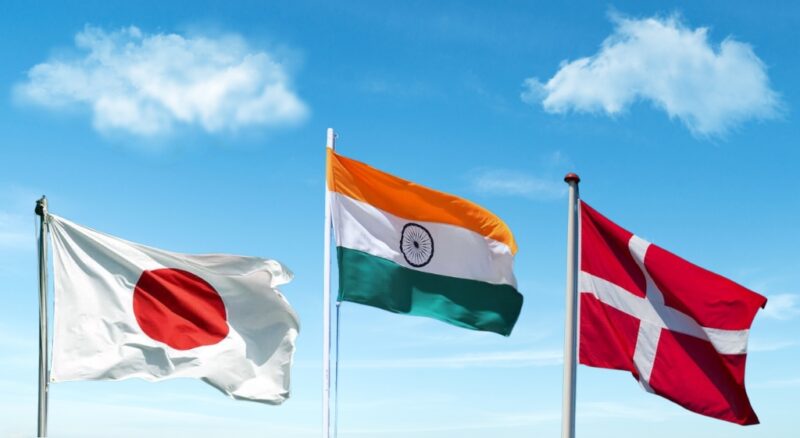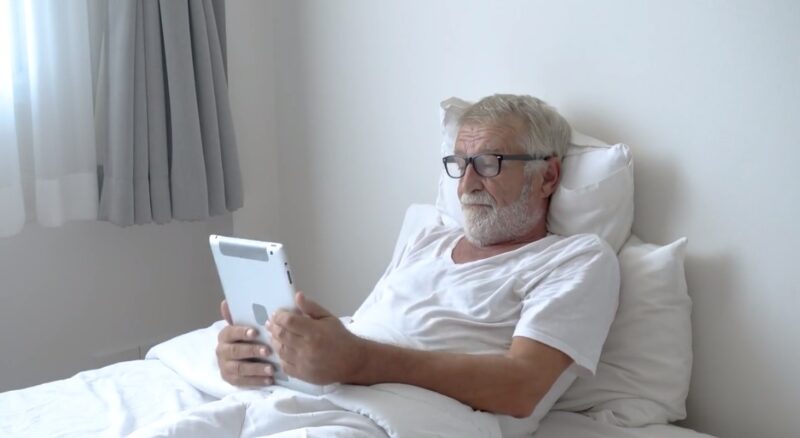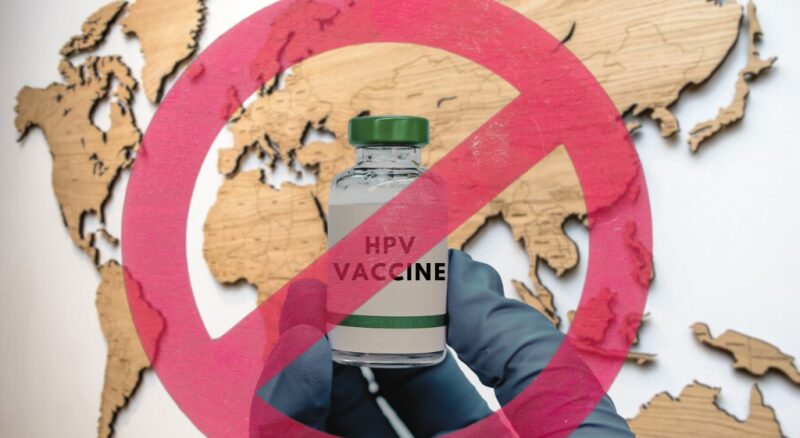The Human Papillomavirus (HPV) vaccine has been a topic of discussion and debate in many countries around the world. While the majority of nations have embraced the vaccine due to its potential to prevent certain types of cancers, some countries have expressed concerns leading to its ban or restricted use.
The Science Behind HPV Vaccine
The HPV vaccine is designed to protect against the most common types of HPV that can lead to cervical cancer and genital warts. It’s recommended for both boys and girls, with the primary goal of reducing the incidence of these diseases.
- Understanding HPV: Human Papillomavirus is a group of related viruses. Some of these viruses can lead to cancer if not treated. The vaccine aims to provide immunity against the most dangerous strains.
- Benefits of the Vaccine: The primary benefit of the HPV vaccine is the prevention of cervical cancer. It also protects against other types of cancers and genital warts.
Countries Where It Is Restricted

Several countries have raised concerns about the HPV vaccine, leading to its ban or restricted use. Let’s explore these countries and their reasons.
- Japan: In 2013, Japan decided not to actively promote the HPV vaccine after some reports of adverse reactions. While it hasn’t banned the vaccine, it’s no longer on the recommended list.
- India: India suspended clinical trials of the HPV vaccine in 2010 due to alleged ethical violations. The vaccine is available but not part of the national immunization program.
- Denmark: Denmark experienced a media storm around potential side effects of the HPV vaccine. While it hasn’t banned the vaccine, there’s been a decline in its use.
Raised Concerns
While the HPV vaccine has proven to be effective, some concerns have been raised about its safety and necessity.
- Safety Concerns: Some countries have reported adverse reactions to the HPV vaccine, including pain, fatigue, and neurological disorders. However, large-scale studies have found the vaccine to be safe.
- Necessity of the Vaccine: Questions have been raised about the necessity of the vaccine, especially in countries with low incidences of cervical cancer.
The Global Perspective

The World Health Organization (WHO) and other health bodies have endorsed the HPV vaccine as safe and effective. However, the decision to use it varies from one country to another.
- WHO’s Stance: The World Health Organization recommends the HPV vaccine as part of routine vaccinations in countries where cervical cancer is a significant public health issue.
- Balancing Benefits and Risks: Every medical intervention comes with risks and benefits. For many countries, the benefits of preventing cancer outweigh the potential risks of the vaccine.
How Media is Shaping Perceptions?
The media plays a pivotal role in shaping public opinion on various issues, including medical interventions like vaccines. The way the HPV vaccine has been portrayed in different countries has significantly influenced public perception and policy decisions.
- Sensationalism vs. Facts: Often, isolated incidents or adverse reactions get sensationalized in the media, leading to widespread panic. It’s essential to differentiate between individual cases and broader scientific consensus.
- Influence on Policy Decisions: Public outcry, fueled by media reports, can sometimes pressure governments into making hasty decisions. It’s crucial for policymakers to rely on scientific data rather than public sentiment alone.
Common Myths
There are several myths and misconceptions surrounding the HPV vaccine, which can deter individuals from getting vaccinated.
- The Vaccine Causes Infertility: There’s no scientific evidence to suggest that the HPV vaccine causes infertility. This myth has been debunked by multiple health organizations.
- Only Women Need the Vaccine: While cervical cancer is a significant concern for women, HPV can cause other types of cancers that can affect both genders. Hence, the vaccine is recommended for both boys and girls.
The Way Forward

For the HPV vaccine to be effective on a large scale, it’s essential to address the concerns and misconceptions surrounding it. Education and awareness campaigns can play a crucial role in this.
- Educating the Public: Awareness campaigns can help dispel myths and provide factual information about the vaccine’s benefits and potential risks.
- Collaboration Between Governments and Health Bodies: Governments should collaborate with international health bodies to ensure that their decisions are based on the latest scientific research.
The Impact on Public Health
The decision to ban or restrict the HPV vaccine in certain countries has broader implications for public health. The vaccine’s primary goal is to reduce the incidence of HPV-related cancers, and its restricted use can have long-term consequences.
- Potential Rise in HPV-related Cancers: Countries that have limited the use of the HPV vaccine might see a rise in HPV-related cancers in the future. Early vaccination can prevent these cancers, emphasizing the vaccine’s importance.
- Economic Implications: Treating HPV-related cancers can be costly. By preventing these cancers through vaccination, countries can save on long-term healthcare costs.
Lessons from Other Vaccines
The HPV vaccine isn’t the only vaccine that has faced skepticism. Looking at the history of other vaccines can provide insights into the challenges and successes of vaccine adoption.
- The MMR Vaccine Controversy: The MMR (measles, mumps, and rubella) vaccine faced skepticism due to a now-debunked study linking it to autism. Public confidence in the vaccine dropped, leading to measles outbreaks in several countries.
- Polio Vaccine’s Success Story: Despite initial fears and challenges, the polio vaccine has nearly eradicated the disease worldwide. This success story highlights the potential positive impact of widespread vaccination.
The Role of Healthcare Professionals

Healthcare professionals play a crucial role in guiding public opinion on medical interventions, including vaccines. Instead of looking for information online, consultation with a doctor is always the right approach.
That will also prevent you from believing in misinformation related to potential side-effects and many other details about the vaccine.
- Building Trust: Doctors, nurses, and other healthcare providers are often the most trusted sources of medical information. Their endorsement of the HPV vaccine can significantly influence public perception.
- Addressing Concerns: Healthcare professionals can provide a balanced view of the vaccine, addressing both its benefits and potential risks. By doing so, they can help alleviate concerns and misconceptions.
It is crucial to rely only on data provided by medical experts. A group of doctors from the Australian Institute of Health and Welfare got some positive data from the research related to the introduction of HPV vaccine for both boys and girls back in 2007. Here are the results:
“Since the implementation of the National HPV Vaccination Program, there have been significant decreases in the age-standardized incidence rate of cervical cancer, and death rate from cervical cancer, per 100,000 females. The incidence rate decreased from 14.2 (in 1982) to 7.4 (in 2014), while the death rate decreased from 5.2 (in 1982) to 1.7 (in 2014).”
Impact of Restrictions
The decision to restrict or ban the HPV vaccine doesn’t just have health implications. It also affects society at large, influencing gender dynamics, healthcare access, and public trust in medical institutions.
- Gender Dynamics and Health Equity: Since HPV-related cancers primarily affect women, restricting the vaccine can be seen as a gendered health issue. Ensuring equal access to preventive measures like the HPV vaccine is crucial for gender equity in healthcare.
- Public Trust in Medical Institutions: Conflicting messages about the vaccine can erode public trust in health institutions. Restoring this trust requires transparent communication and evidence-based decision-making.
FAQs
What age group is the HPV vaccine recommended for?
The HPV vaccine is typically recommended for preteens aged 11 or 12, but can be given as early as age 9 and up to age 26. It’s most effective when given before an individual becomes sexually active.
How many doses of the HPV vaccine are required for it to be effective?
The number of doses required depends on the age at which the vaccine is initiated. Typically, two doses are recommended for those who start the series before their 15th birthday, and three doses for those who start at age 15 or older.
Are there any side effects associated with the HPV vaccine?
Like any vaccine, the HPV vaccine can cause side effects. The most common side effects are mild and include pain or swelling at the injection site, fever, headache, and fatigue. Serious side effects are rare.
Can the HPV vaccine protect against all types of HPV?
No, the HPV vaccine protects against the most common and high-risk types of HPV that cause cervical cancer and genital warts. However, it doesn’t protect against all types of HPV.
Is the HPV vaccine effective for life, or do you need booster shots?
Current research suggests that the HPV vaccine provides long-lasting protection. As of now, booster shots are not recommended, but ongoing research will determine if they become necessary in the future.
Can individuals who have already been infected with HPV still benefit from the vaccine?
Yes, individuals who have been infected with one type of HPV can still benefit from the vaccine as it protects against multiple types. However, the vaccine cannot treat existing infections or diseases caused by HPV.
Summary
The debate surrounding the HPV vaccine underscores the complexities of public health decisions. Balancing individual concerns with broader societal benefits is challenging.
However, the overarching goal remains clear: to protect individuals from preventable diseases and ensure a healthier future for all. The HPV vaccine, backed by rigorous scientific research, stands as a testament to medical advancements’ potential to transform lives.
In the ongoing global debate about HPV vaccine policies, many people have also questioned why their arm might hurt after receiving it, seeking a better understanding of the science behind this common concern.
